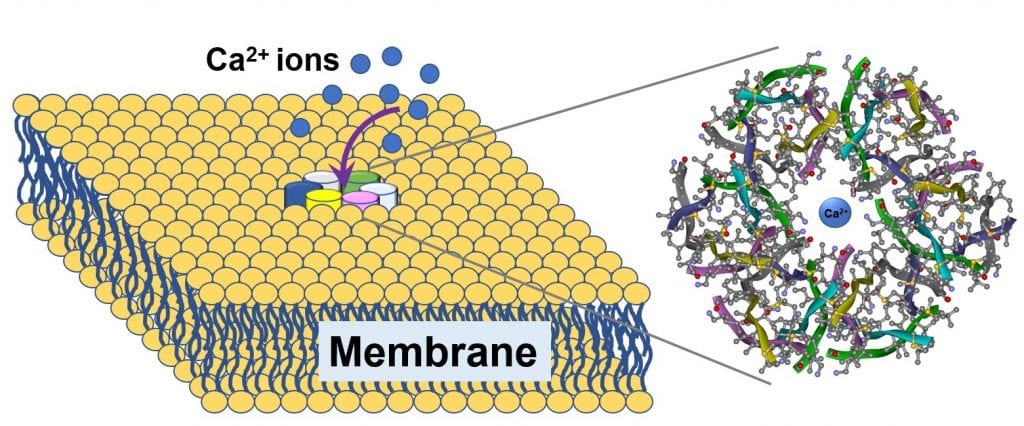Research Unlocks Mystery of Premature Brain Cell Deaths

Certain toxic proteins have long been suspected as the culprits killing off brain cells, a process eventually leading to neurodegenerative diseases like Alzheimer’s. But exactly how those proteins were prompting the premature death of the cells was, up until recently, a mystery.
UCF researchers developed a method by setting up a synthetic reconstitution of the conditions in which the amyloid beta (A-beta) peptide naturally attacks brain cells. The controlled setting, paired with fluorescence measurements, made it possible to monitor formation of calcium-conducting pores by A-beta in lipid bilayer membranes. They were also able to pin down the molecular structure of the pores by internal reflection infrared spectroscopy.
Now that researchers have achieved a better understanding of how the peptides breach the cell membrane, it’s theoretically possible to design strategies of impeding membrane perforation by A-beta, with an ultimate goal of staving off the onset and/or progression of the disease.
“In order to fight the enemy efficiently, you have to understand how it works. This study gives us a wealth of information that paves the way for further, more clinically oriented research,” said Suren Tatulian, Ph.D., who developed and published the research in Scientific Reports, along with two graduate students, Nabin Kandel and Jason O. Matos.
